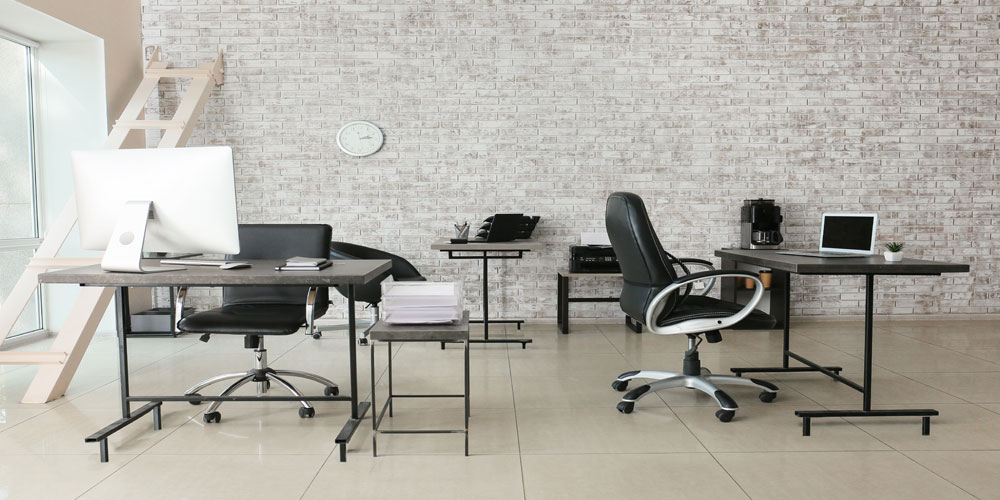
Office Equipment Needed to Run a Successful Business
Office equipment plays a crucial role in any business, regardless of its size, industry, or location. Without the right equipment, businesses may struggle to communicate with their customers, complete daily tasks, or produce goods and services efficiently. In this article, we will explore 3000 words on the essential office equipment needed to run a successful business.
Computers and Laptops
Computers and laptops are the backbone of any modern office. They enable employees to complete tasks efficiently, communicate with colleagues and customers, and store and organize data. Laptops are ideal for remote workers or employees who need to travel frequently. Desktop computers, on the other hand, are more powerful and can handle more demanding tasks such as video editing, graphic design, and coding.
Printers and Scanners
Printers and scanners are essential office equipment that businesses use to produce documents, brochures, and reports. Printers can be inkjet or laser, and they differ in terms of printing speed, cost per page, and quality of output. Scanners are used to digitize physical documents, and they come in different types such as flatbed, sheet-fed, and handheld.
Projectors and Screens
Projectors and screens are used in conference rooms and meeting areas to display presentations, videos, and other visual content. They enable businesses to communicate effectively with clients and colleagues, and they are especially useful for remote teams. Projectors come in different sizes and resolutions, and some can connect to laptops and smartphones wirelessly.
Telephones and VoIP Systems
Telephones and VoIP (Voice over Internet Protocol) systems are essential communication tools for businesses. They enable employees to make and receive calls, voicemails, and video calls. VoIP systems are preferred by many businesses because they are more cost-effective than traditional phone systems, and they can be used to make international calls at no extra cost.
Internet Connectivity
Internet connectivity is crucial for any business in today’s digital world. It enables employees to access online resources, communicate with clients and colleagues, and perform research. Businesses need a reliable and high-speed internet connection, and they may choose between cable, DSL, fiber-optic, or satellite internet depending on their location and budget.
Routers and Network Equipment
Routers and other network equipment are used to connect devices to the internet and each other. They enable businesses to share resources such as printers, files, and databases, and they provide a secure and efficient network infrastructure. Routers come in different types such as wired, wireless, and mesh, and they differ in terms of coverage, speed, and security.
Storage Devices
Storage devices are used to store and backup data such as documents, images, and videos. Businesses need a reliable and secure storage solution to protect their data from loss or theft. Common storage devices include hard drives, solid-state drives, USB drives, and cloud storage services. Cloud storage services are increasingly popular among businesses because they offer scalable and cost-effective storage solutions that can be accessed from anywhere.
Security Equipment
Security equipment such as surveillance cameras, access control systems, and alarms are essential for businesses that want to protect their assets and employees. They enable businesses to monitor their premises, restrict access to sensitive areas, and detect and respond to threats. Security equipment can also help businesses comply with regulatory requirements such as HIPAA, PCI, and GDPR.
Software and Productivity Tools
Software and productivity tools are essential for businesses that want to increase efficiency and productivity. They enable employees to complete tasks faster and more accurately, automate repetitive tasks, and collaborate more effectively. Common software and productivity tools include office suites, project management software, accounting software, customer relationship management (CRM) software, and video conferencing tools.
Furniture and Office Supplies for new business
In addition to the equipment listed above, furniture and office supplies are also essential for any new business. Here are some of the most important items:
Desks and Chairs
Desks and chairs are essential for any office space. They provide employees with a comfortable and ergonomic workspace that enables them to work for long hours without strain or discomfort. Desks come in different sizes and configurations, such as standing desks, adjustable desks, and L-shaped desks. Chairs should be adjustable, with good lumbar support and comfortable seating.
Filing Cabinets and Storage Units
Filing cabinets and storage units are used to organize and store documents, files, and supplies. They help businesses maintain a tidy and efficient workspace, and enable employees to access important information quickly and easily. Filing cabinets come in different sizes and materials




